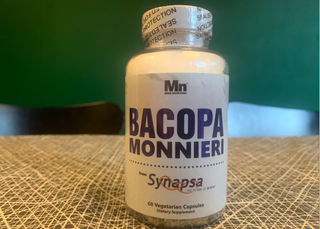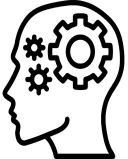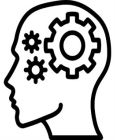Nootropics
What Is a Nootropic?
A substance that, if used properly, safely enhances cognitive performance.
Posted December 21, 2019 Reviewed by Kaja Perina

Examples:
What’s the difference between food, drug, supplement, and nootropic?
The salad you ate for lunch contains molecules that your body will take up and use for regulating its different (immune, neurotransmitter, hormone, etc.) sub-systems.
If you, for a second, remove the labels we put on these substances (drugs, foods, supplements, and nootropics), you can see that they’re ultimately all very similar: They all consist of molecules. Your body will respond to the molecules it is exposed to through various cellular processes.
Your genes are responsible for how any exogenous (coming from outside the body) compound is absorbed and distributed throughout your body. Your individual genetic predispositions play a huge role in how you will respond to food, drug, supplement, or nootropic.
But labels can be useful, so let’s put a label on nootropics that will distinguish them from food and drugs (a nootropic is a supplement).
Definition of a nootropic:
1. A nootropic is not primarily consumed for survival or hedonistic purposes (as drugs and food are).
2. A nootropic is used primarily for the purpose of enhancing the cognitive functions of the user in the long term.
3. Nootropics are safe in the long term.
Nootropics may well become more popular in the future than they are currently, as the science of their safety and efficacy becomes more publicly available and discussed.
The more evidence-based we become in our experience engineering, the more efficiently we can help people obtain real benefits while avoiding quackery or dangerous chemicals.
There’s a lack of human evidence for many of the nootropics that people use and may benefit from today.
Randomized placebo-controlled double-blind trials measuring impact on cognitive functions are not available for many of the nootropics that people use today.
For safe long-term human enhancement of mood and cognition, it is important to attain an accurate view of the evidence that does exist.
To start experimenting with nootropics, you can use our app to get a nootropic recommendation for your specific goals.
Our recommendation engine scrutinizes 178 human placebo-controlled studies with 7619 experimental group participants on 77 nootropics to recommend the best nootropic for your goals of cognitive enhancement.
If you have the right mindset to nootropics use (awareness of the risks and how to avoid them), you’re in a great position for experience engineering success.
To achieve peak cognitive performance and well-being, make sure to upgrade your sleep, exercise, nutrition, and mindfulness.
References
This blog post was originally published at nootralize.com; it is not a substitute for professional medical advice, diagnosis, or treatment.


